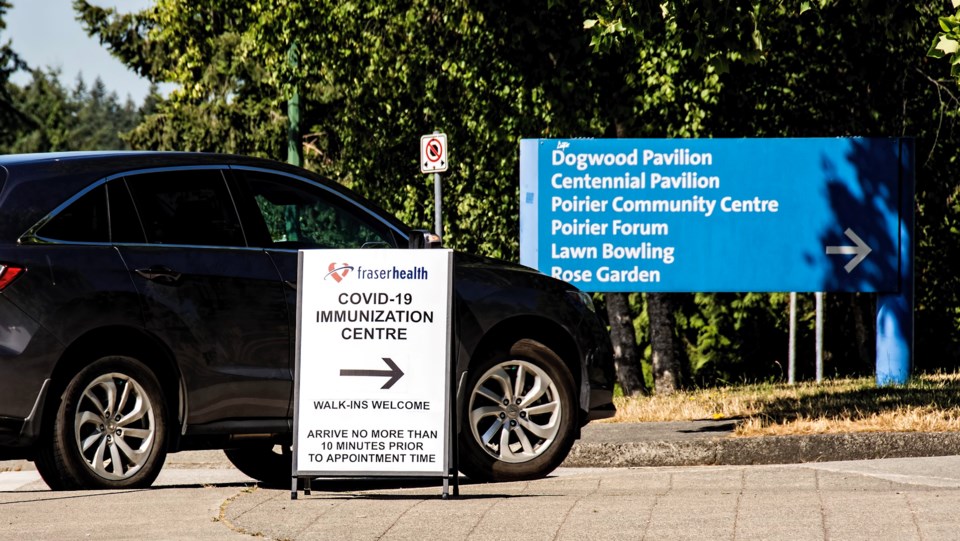Despite an increasing number of British Columbians getting vaccinated for COVID-19, the province is seeing its number of new cases, and the number of people actively battling infections starting to spike.
The good news is that serious infections and deaths from the disease have yet to noticeably rise, although those metrics may increase if case counts keep going up.
It was not immediately clear how many of the 342 people newly infected with COVID-19 overnight in B.C. were not vaccinated. Last week, provincial health officer Bonnie Henry told media only 3.8% of infections detected in the province between June 15 and July 15 were in people who had been fully vaccinated for more than seven days before noticing symptoms.
She explained that this statistic showed the value of receiving two doses of vaccine, and she urged all eligible British Columbians to get vaccinated.
The 342 new infections is the highest daily number of new COVID-19 detections since May 27, almost 10 weeks ago. Back then, health officials identified 378 new cases.
The Interior Health region continues to be the province's hot spot for infections, and its proportion of vaccinated individuals is lower than the provincial average. That region includes the Central Okanagan, where the government has implemented a mask mandate for inside public spaces.
Here is a breakdown of where the 342 new COVID-19 infections in B.C. are, by health region:
• 66 in Fraser Health (19.3%);
• 57 in Vancouver Coastal Health (16.7%);
• 171 in Interior Health (50%);
• 13 in Northern Health (3.8%);
• 32 in Island Health (9.4%); and
• three people who normally resides outside B.C. (0.9%).
Daily COVID-19 case counts have been trending upward in recent weeks, pushing up the number of people actively battling the disease.
There are now 1,764 people actively fighting the illness in B.C., which is the highest total since June 11, when there were 1,880 such people.
More than 97.6%, or 147,409, of the 150,973 people known to have contracted COVID-19 in B.C. are considered by the province to have recovered because they have gone 10 days after first feeling symptoms, and are therefore thought to not be infectious.
Most of those actively fighting illness have been told to stay home and self-isolate, however, 55 people with COVID-19 are in B.C. hospitals, with 23 of those sick enough to be in intensive care units (ICUs). The last time there were more people in B.C. hospitals with COVID-19 was July 16. ICUs have not been more full of COVID-19 patients in more than a month.
B.C.'s death toll from the pandemic has been relatively stable of late, with only one death in the past week, and no new deaths in the past 24 hours.
Provincial data show 3,777,588 British Columbians with at least one dose of vaccine, and 3,146,669 people being fully vaccinated with two doses of vaccine.
The government estimates that this translates into 81.5% of the eligible population being vaccinated at least once, and 67.9% of the eligible population being vaccinated twice.
The B.C. government's most recent estimate of the province's total population is 5,147,712, so that means that about 73.4% of B.C.'s total population has had at least one dose of vaccine, and 61.1% of the province's total population has had two doses.
The province's pace for new and subsequent vaccinations has slowed, with only 16.7% of those who have had at least one dose of vaccine not being fully vaccinated.
There are three new seniors' living facilities that have COVID-19 outbreaks – all of which are in the Interior Health region:
• Kootenay Street Village in Cranbrook;
• Cottonwoods Care Centre in Kelowna; and
• Brookhaven Care Centre in West Kelowna.
Two other outbreaks at seniors' care homes have been active for weeks. They are Holyrood Manor in Maple Ridge, and Nelson Jubilee Manor in Nelson.



